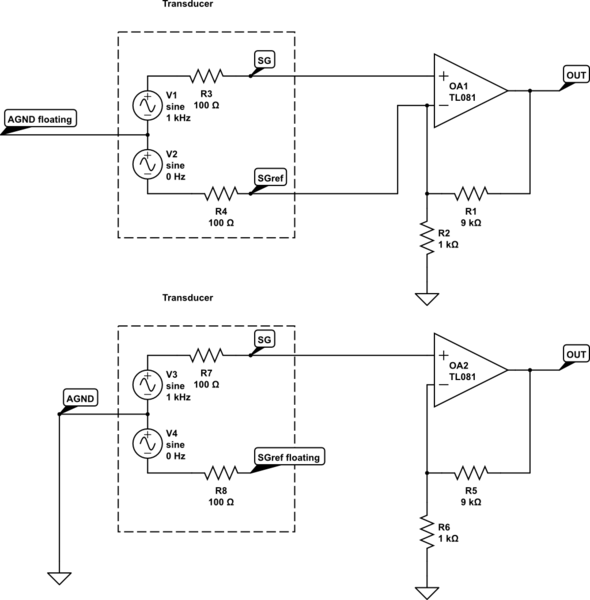A three wire source has differential output but uni-polar(only one signal wire varies wrt AGND). Ground wire is AGND, the the other two is signal SG and the reference SGref. I'm trying to amplify the transducer signal with a gain of ten by using a non-inverting amplifier.
Since the transducer is not single ended output I'm bit confused. Which topology is correct?

simulate this circuit – Schematic created using CircuitLab
At page 41 here shows the differential wiring of channels and at page 37 it says:
The transducer outputs are designed to work with a differential input to the DAQ system for best performance. Transducer outputs are ground-referenced differential signals. The output impedance of each DAQ signal is 100Ω
(I checked the output and only SG moves wrt to AGND but not SEGref so I think it is unipolar even though differential ended)
